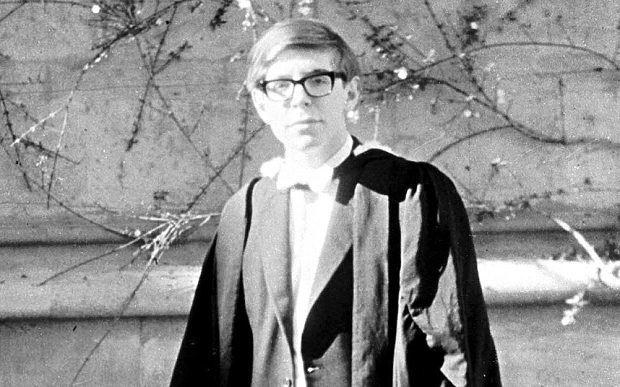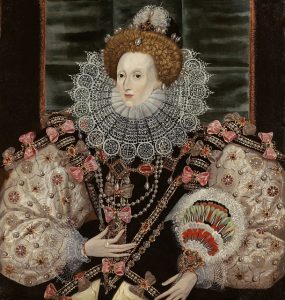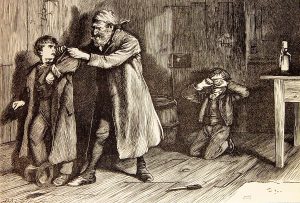With a heavy workload, financial stress, and balancing a social life, college can at times seem like a drag. Is the stress and hard work of all of this in college really worth the piece of paper at the end of these four or possibly six or eight years of toil? Just as millions of college students have experienced, renowned physicist Stephen Hawking also struggled to find meaning in his education. It is hard to believe that someone that is largely considered one of the greatest thinkers of modern times could possibly think this of his college years. When your life is put on a timer, school is the last of your priorities.

At only seventeen years old, Stephen Hawking entered the prestigious Oxford University and wanted to study physics and math, but to keep his father happy he ended up studying physics with chemistry rather than mathematics. During his first year, Hawking battled with feelings of isolation, as he did not make many friends, as his classmates were much older than he was.1 He thrived but was not very happy most of the time he was there. Loneliness is a very common thing for college students to go through, as for many, it is the first time away from home. Frankly, adjusting can be difficult, but more so at such a competitive school like Oxford.
However, things began to look up for the future scientist as, during his last year an an undergraduate, he joined the rowing club and went to parties with this friends.2 With his undergraduate degree in the books, Hawking turned his focus on cosmology, a sub-section of astronomy that is dedicated to discovering the origins of our universe. When he began his graduate career in the mid-sixties, Hawking slowly began to lose control of his body. For some reason, he was getting clumsier and clumsier, and fell for no reason at all.3
After a visit with a specialist, Hawking was diagnosed with amyotrophic lateral sclerosis, otherwise known as ALS or Lou Gehrig’s disease. The disease slowly breaks down the tissue in the nervous system that affects movement.4 While brain function was not affected at all, Hawking slowly but surely would lose control of his body until he died. After his diagnosis, he was only given two-and-a-half years to live.5 His new-found academic happiness was short-lived as he was now living only to die. His years as an undergraduate were now seemingly wasted, as he could not finish his PhD at his new school Cambridge in the limited amount of time he had left.

While initially depressed, a series of events led Hawking to use his limited time wisely. First, while in the hospital, he saw a young boy across from him die from leukemia, which made him realize that while he may have it bad, others have it a lot worse.6 Secondly, he had a dream that he was going to be executed, and he came to the realization that, while he was initially bored with life, there was still a lot left that he wanted to do.7 Lastly and most importantly, he became engaged to his first wife, Jane Wilde. Reflecting back on her significance, Hawking said, “the engagement changed my life. It gave me something to live for. It made me determined to live. Without the help that Jane has given I would not have been able to carry on, nor would I have had the will to do so.”8 Cambridge wanted to help Hawking continue his work, and while they could not make the exception of letting him get his PhD early, they helped in the quality of his life by helping him find closer housing, since Hawking could no longer walk far.9
His disease developed much slower than expected, and with everything falling into place for Hawking, he began making his landmark discoveries in the fields of cosmology and astrophysics. He suggested that the universe must start at a singularity (a point in time where the matter in the universe is infinitely dense) and from then on explodes with a “big bang.”10 Backed by Einstein’s theory of general relativity, it was very difficult to argue with the math behind the landmark theory.

A major part of Hawking’s life was that he wanted to make physics accessible to the everyday person. With this in mind, he wrote books such A Brief History of Time and Black Holes and Baby Universes, as well as help write and produce science movies such as The Theory of Everything. He also refused to let his disability stop him from doing whatever he tried, and to live as normal a life as possible, and take as many opportunities as he could.11 Sadly, we lost a great mind as he passed away on March 14, 2018, which just so happened to coincide with Einstein’s birthday. Hawking defied odds throughout his career as he outlived his initial “death sentence” by more than fifty years. While he can no longer provide further discoveries, he has brought inspiration to a new generation of physicists. Many look up to Newton and Einstein and say they want to be like them, but now many look up to Hawking and say the same.
- Major 21st-Century Writers, 2005, s.v. “Hawking, Stephen W(illiams) (1942-).” ↵
- Major 21st-Century Writers, 2005, s.v. “Hawking, Stephen W(illiams) (1942-).” ↵
- Major 21st-Century Writers, 2005, s.v. “Hawking, Stephen W(illiams) (1942-).” ↵
- L. Fleming Fallon Jr, An Overview of Lou Gehrig’s Disease (ALS), in Lou Gehrig’s Disease, edited by Sylvian Engdahl (Detroit: Greenhaven Press, 2012), 16-24. ↵
- Major 21st-Century Writers, 2005, s.v. “Hawking, Stephen W(illiams) (1942-).” ↵
- Stephen Hawking, A World Famous Scientist Tells about His Life With ALS, in Lou Gehrig’s Disease (Detroit: Greenhaven Press, 2012), 101. ↵
- Stephen Hawking, A World Famous Scientist Tells about His Life With ALS, in Lou Gehrig’s Disease (Detroit: Greenhaven Press, 2012), 101. ↵
- Major 21st-Century Writers, 2005, s.v. “Hawking, Stephen W(illiams) (1942-).” ↵
- Stephen Hawking, A World Famous Scientist Tells about His Life With ALS, in Lou Gehrig’s Disease (Detroit: Greenhaven Press, 2012), 103. ↵
- UXL Encyclopedia of World Biography, 2003, s.v. “Hawking, Stephen,” by Laura B. Tyle. ↵
- Stephen Hawking, A World Famous Scientist Tells about His Life With ALS, in Lou Gehrig’s Disease (Detroit: Greenhaven Press, 2012), 100. ↵



63 comments
Rylie Kieny
Stephen Hawking is an incredible man that the world should never forget. He discoveries along with defying all odds makes him and idol for many. I love how this article included his dream and seeing the young boy in the hospital. That was something I never knew yet was so pivotal in his new found desire to live. I think that we can all use him as an example for moving forward. Despite his disabilities and predicted two year life sentence he never quit. He continued to do research, publish books, and have a positive impact on society. He is what it means to never give up and take advantage of the time you have no matter how little.
Lamont Traylor
I find it so cruel how often people that have the most to lose and are trying to do something with their life, get it taken away such as Stephen Hawking’s was. I admire his passion and drive to finish what he had started even with his condition. I wonder what he would have accomplished if he was not stricken by illness.
Alexandra Lopez
Reading this article informed me about the personal aspects of Hawking’s life that I had not known about. Many who look up to great minds seem to forget that they were once young adults who experienced what we (students) experience as well. The author of this article took a great perspective on the life of Hawking’s life and career making him relatable yet undeniably a fighter for his life.
Christopher Hohman
Nice article. I really love Stephen Hawking. Even though he had ALS he refused to let it stop living his life and look at what happened. He lived through his mind not through his body that is how he lived for so long. Look at all that he did. He wrote books, worked on theories, and even produced a few educational tv series for young children. What a life he lived. I also like how he said we should treat everyone with respect regardless of any differences we may have. He will be missed
Rebecca Campos
I really enjoyed that the author decided to discuss aspects of his own personal life and not only the successes of Dr. Hawkings career. Even though he unfortunately passed away this year, he still managed to be one of the most brilliant minds to date. I don’t think it was a coincidence by any chance that he happened to pass away on Einstein’s birthday. Stephen Hawking took a terrible circumstance he was given and used it to help him be a better person and a better scientist to bring change to the world and for the future.
Karina Cardona Ruiz
It’s very inspiring how Stephen Hawking did not let his disease hold him back from what he wanted to do. It’s a miracle that he lived much longer than expected and was able to live his life and share his great knowledge with us. He’s contributed so much to the scientific field and will be remembered for it. I found it a bit odd how the day he passed ended up being Einstein’s birthday but it seems fitting.
Sofia Andrade
I was familiar with Stephen Hawkins but it was great to learn the details of his life through reading this article. Being a college student, the beginning of the article really appealed to me and I could relate to what I was reading. It was also inspiring to read about how Stephen Hawkins did not let his disability put his life on hold. His passion is perhaps what extended his years of life.
Mariana Valadez
I was familiar with Stephen Hawking’s story because I had seen the movie. It is a very inspirational story. It is so cute to see how a girl motivated him to live a normal and well life. He made history with scientific theories. He is truly someone that will be remembered by everyone forever. I am sure he has inspired and motivated everyone at one point in our lives.
Enrique Segovia
Undoubtedly, Stephen Hawking had one of the greatest minds in history, and his groundbreaking work will always continue to be useful for various fields of science, such as math, physics, chemistry, cosmology, and others. Compared to huge minds like Newton and Einstein, Hawking probably had a rougher path to surmount, but this did not stop him from his objectives. I like how the article prioritizes the love excerpt of his life as the most important things that kept him going and inspired him to live. Also, I learned that Hawking was innovative and wrote books accessible and easy to understand by everyone, as he thought it ideal for everyone to have knowledge on complex scientific topics. Even though he is deceased now, his exemplary work will live on forever.
Ysenia Rodriguez
Stephen Hawking is truly an inspiration. He not only made history with his scientific theories but he defied all odds by outliving his two year “death sentence.” Everything lined up for this man to create change in scientific reasoning and was even able to make physics more easily accessible to the average everyday man. His story and his theories have made a lastly impression in the world and although he is gone he is not forgotten.